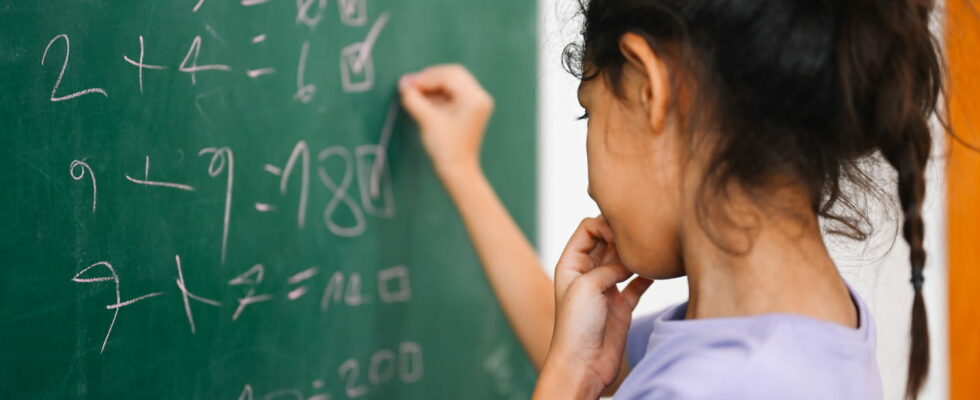Despite numerous national education reforms, French students still have difficulty getting ahead in mathematics. And it’s not just a simple lack of will.
The level of students in mathematics is still below the average for OECD countries. According to the ranking of the Independent International Organization for Timss school assessmentmade public on December 4, 2024, France is even ranked last in the European Union among CM1. Unfortunately, these statistics are not a surprise to anyone: in November, measures had already been taken by Anne Genetet, the Minister of National Education, with Act II of the “Shock of knowledge”. Between a complete overhaul of certain programs, labeling of school textbooks and a return to mathematics at the baccalaureate, everything had been done to return to our former level.
Indeed, in the 1950s-70s, France was renowned for its excellence on a global level: “It was almost dominant with exceptional mathematicians who, alone, produced a significant part of world mathematics”, explains Jean-Pierre Demailly , teacher researcher at the University of Grenoble in France Culture.
Over time, however, French intellectuals became dunces. So much so that year after year, the same question comes up: why are our students so bad at mathematics? To find out, the mathematician, winner of the prestigious Fields medal in 2010 and former deputy for Essonne, Cédric Villani, produced a report, dating from 2018, in collaboration with the general inspectorate of National Education. According to him, the French school of the 21st century would not be suitable for good mathematics learning. Particularly because of the lack of time and training of teachers.

In an interview given to FigaroÉric Charbonnier, one of the specialists in education issues at the OECD, deplores the extent of the time spent by teachers correcting copies: “France is also one of the countries where the teacher will spend a lot of time to correct homework and evaluate. Seven hours a week is enormous!” On average, OECD countries provide twenty to twenty-five hours of weekly lessons, compared to eighteen hours for France.
In addition, a survey by the Ecolhuma Observatory reveals that 80% of teachers train themselves, on social networks or on the internet, due to a lack of support from National Education. The programs, often unstable, force them to constantly prepare new courses. And their low salary income does not help their feeling of abandonment when they face outdated classes. “The teacher is often alone,” notes Cédric Villani.
For their part, the students are no less struggling. Over time, mathematics has acquired an often disproportionate social and symbolic weight. According to theCedre investigation74% of 3rd grade students surveyed say they are worried about getting bad grades in this subject. For good reason, the discipline suffers from an elitist image which intimidates schoolchildren. “From the age of 7, some students already declare themselves to be poor at mathematics,” regrets the Villani report. For some, the scale of the work is such that they may have to leave the school system suffering from innumeracy. And others, walled in incomprehension, endure the course without wanting to participate.
